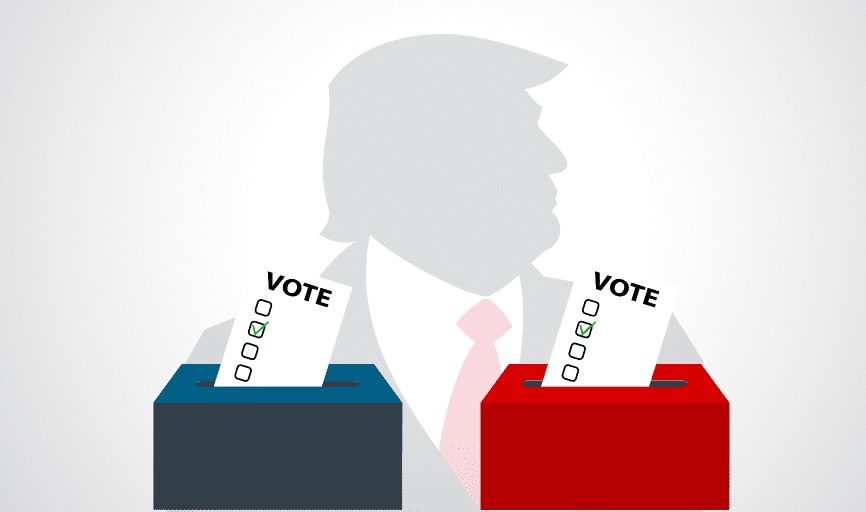In the age of globalization, media control, and electoral manipulation, it’s becoming increasingly critical to examine the inner workings of how elections might be rigged and democracy undermined. This is not just about winning an election—it’s about securing control over the very systems that ensure freedom, fairness, and the voice of the people. In this investigative piece, we will dive into the myriad ways that powerful globalist forces could theoretically rig elections, distort narratives, and deceive voters into believing that they are choosing fairness, all while eroding true freedom. This isn’t about siding with Republicans or Democrats; it’s about siding with democracy and free will.
How Elections Can Be Rigged: A Step-by-Step Breakdown
Election manipulation is not new—it’s been a part of global history. But as technology evolves and societies become more interconnected, the ways elections can be influenced or rigged have become far more complex. Below, we explore the numerous methods that could be used to hijack an election.
1. Voter Roll Manipulation
- Purging Voter Rolls: One of the most effective ways to disenfranchise voters is by purging them from the voter rolls. This can target minority communities, low-income individuals, or groups that lean toward one political party. By labeling voters as felons, questioning their citizenship status, or simply removing them due to clerical errors, many voters may arrive at the polls only to discover they are no longer registered.
- Inflating Voter Rolls: Conversely, voter rolls can be inflated with names of deceased individuals, people who have moved, or even phantom voters. These “voters” can then be used to cast additional ballots, inflating vote counts and skewing results in favor of a particular candidate.
2. Voter Suppression
- Targeted Poll Closures: By closing polling stations in specific areas, often in opposition strongholds, voter turnout can be severely reduced. Long lines, travel distances, and voter frustration are all effective ways to discourage participation, particularly among communities that might vote against the desired candidate.
- Intimidation at the Polls: Sending “poll watchers” to minority or immigrant-heavy polling stations can intimidate voters, especially non-English speakers. This has been reported in multiple elections, where voters claimed they were discouraged or misinformed about their voting rights.
3. Busloads of Immigrants: The 2020 Allegations
During the 2020 U.S. presidential election, claims circulated that busloads of non-English-speaking immigrants were being transported to polling stations and instructed to vote for Joe Biden. According to the allegations, these individuals, many of whom were not U.S. citizens, were paid for their votes and misled into participating in an illegal operation. While investigations into these claims did not uncover conclusive evidence of widespread fraud, the fear that non-citizens might be swayed by globalist interests remains a significant concern. Such incidents—if they occurred—would not only undermine the U.S. election but also exploit the very people globalists claim to protect.
These tactics don’t just undermine democracy in America—they also damage the immigrants’ home countries. By participating in the democratic process of another country, these individuals are removed from their role in improving the political and economic systems in their own nations. This creates a global cycle of exploitation, where corrupt regimes back home are never held accountable because their populations flee rather than stay to fight for change.
4. Absentee and Mail-in Ballot Manipulation
- Ballot Harvesting: This involves operatives collecting absentee or mail-in ballots and submitting them on behalf of voters. In some cases, fraudulent ballots may be included, or legitimate ballots might be discarded if they are in favor of the opposing candidate. It is difficult to track such fraud on a large scale because it often occurs outside of official polling stations.
- Mail-in Ballot Tampering: With the rise of mail-in voting, especially during the COVID-19 pandemic, the potential for fraud increases. Manipulating mail-in ballots through forgery, tampering, or misplacement could significantly skew results. Even minor disruptions or delays in postal service delivery can affect the final tally.
5. Hacking Voting Machines
- Cyber Manipulation: In today’s world, elections are increasingly digitized. The possibility of hacking voting machines or the systems that report vote totals presents a significant vulnerability. Sophisticated malware could be installed to alter vote counts in favor of the desired candidate, and since these machines are often part of larger networks, the manipulation could occur without detection until after the election.
- Denial-of-Service Attacks: By overwhelming election infrastructure with cyberattacks, hackers could disrupt vote counting, delay results, or cause confusion and chaos that might benefit one party.
6. Media Control: The Power of Perception
- Media Consolidation: Only a few corporations control the majority of media outlets in the United States. By shaping the narrative leading up to an election, these companies can sway public opinion, marginalize certain candidates, and amplify others. For example, negative stories about one candidate can be overemphasized, while potentially damaging information about another is suppressed.
- False Historical Narratives: Media control doesn’t stop at election coverage—it extends to the shaping of historical narratives. Much like how the Communist movement in Russia convinced people that a new regime would bring fairness, the globalist agenda today promises that centralized control and open borders will create equality. Yet history shows that once power is consolidated, freedoms are lost. The promise of fairness quickly fades as control moves into the hands of a small elite, leaving ordinary people with fewer rights and freedoms than before.
7. Manipulating Social Media
- Disinformation Campaigns: Globalists have increasingly used social media to amplify disinformation or sow discord among voters. Social media bots, troll armies, and well-coordinated campaigns can create the illusion of public opinion shifting toward one candidate when, in reality, it’s orchestrated.
- Shadow-banning and Censorship: Voices critical of the globalist agenda can be silenced on platforms like Twitter, Facebook, and YouTube through shadow-banning or outright censorship. By controlling the digital narrative, globalists create an echo chamber that excludes dissenting viewpoints, effectively swaying public perception.
The Globalist Agenda: Promises of Fairness, Erosion of Freedom
Many Democrats have been led to believe that globalism will create a more inclusive and fair society. This idea is appealing—who wouldn’t want a world where everyone has equal opportunities? But the truth is more sinister. Globalists seek centralized control: open borders, the weakening of national identities, and the dismantling of sovereignty. They promise fairness and equality, but what they deliver is a system where corporate elites and unelected global bodies hold all the power.
Just like the early promises of Communism, globalism lures people in with the idea of justice, only to strip them of their rights. Jewish communities in the early 20th century were among those deceived by the promise of fairness in Communism, only to find themselves oppressed by the regimes they had helped to build. Globalism, under the guise of progress, seeks to do the same, creating a world where individual freedoms are sacrificed for the interests of the few.
A Call to Democrats: Defend Democracy, Reject Globalism
This article is not a partisan attack—it’s a plea for all voters, especially Democrats, to stand up for democracy and freedom. Voting for centralized, globalist control will not lead to a fairer society; it will lead to the erosion of the very freedoms that democracy is built on. The solution lies not in giving power to global corporations, media conglomerates, or unelected international organizations. It lies in defending free speech, ensuring fair elections, and preserving national sovereignty.
If you value true equality, vote for democracy—not globalism. If you believe in freedom of thought, reject centralized control. This is a call to all who believe in the right to self-determination.
A Message to Immigrants: Build Your Own American Dream at Home
To immigrants seeking a better life in the U.S., we understand your desire to escape difficult conditions. But the true solution lies in returning home to rebuild your countries and create your own American Dream. By leaving your homeland, you abandon the opportunity to improve it. Instead, fight to make your home country a better place—a place where democracy can flourish, and the people can build their own future.
Globalists exploit mass migration, using it for cheap labor while the corrupt governments of your homeland go unchecked. The American Dream is about fighting for freedom—not running from it. Just as America fought to establish democracy, so too can you.
Conclusion: Stand Up for Freedom
In a world where elections can be rigged, media narratives distorted, and history rewritten, we must be vigilant. The only way to secure a future of true equality and fairness is by defending democracy and freedom. Vote for a world where individuals—not corporations, not global elites—hold the power to shape their destinies.



